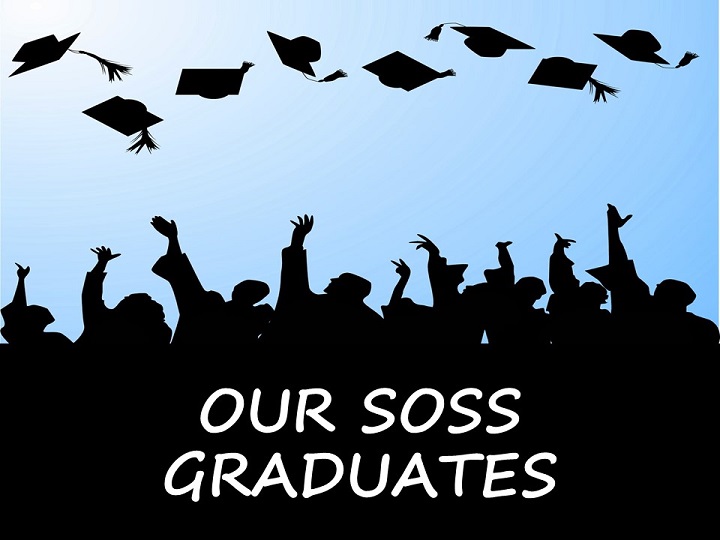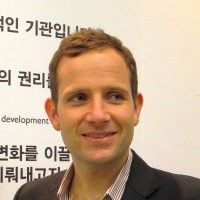

Nicholas Finney graduated from the SMU School of Social Sciences in July 2016 with a Master of Tri-Sector Collaboration (MTSC). We managed to get a chance to ask Nick a few questions about his professional background and his experience as an SOSS postgraduate student.
1. Where are you working at? What are you currently doing within your organization?
I work for Save the Children, an international NGO focused on children’s rights. My current role is Country Director for Turkey and Northwest Syria. I oversee two humanitarian operations, one for Syrian refugee children in Turkey and the other a cross-border operation into Northern Syria where we support health facilities, schools and a range of other activities focused on vulnerable children and their families.
2. Could you share why you undertook your current role? What part of it did you find particularly meaningful or purposeful?
The opportunity happened to come up and I was ready for a new challenge. This is the humanitarian crisis of our times and if any one of us could play a useful role in changing the situation, then I think we should try.
3. What motivated you to apply for the SMU MTSC Programme?
I thought it would be good to study again to help me consolidate my professional experience. There is not much time in most busy jobs to reflect on what you are learning. This is especially true in the humanitarian sector where people tend to work long hours and are under a lot of pressure.
At the time, I was living in Singapore and I decided it would be best to attend a university there. I spend too much time online and the thought of doing a distance learning programme did not appeal to me at all. I prefer to interact with real people.
A couple of students in the previous year of the MTSC programme recommended the course to me. I have always seen a lot of potential in partnerships and had some positive (and frustrating) experiences in the past. I took a look at the programme and decided it would be good combination of consolidating my experience in some areas that are quite familiar to me, and learning something new.
4. How have you benefitted personally from the programme?
I met some great people and built up my professional networks.
5. What are some of the important lessons or takeaways you remember from the programme?
The political complexity of the conflict in Syria, the unprecedented humanitarian crisis this has created, and the ongoing consequences in neighbouring countries are unlike anything I have encountered before. In particular, the Complexity and the Art of Public Policy module has helped me to operate more effectively in this environment. What are the solutions? This is the question everyone would like to answer and we are not there yet.
6. How has the knowledge acquired from the programme aided you in your current role?
I will give an example of a challenge that the skills and tools you would pick up in the MTSC programme could help tackle.
Not a week goes by in Syria without schools and health facilities that Save the Children supports being impacted by airstrikes, killing or injuring civilians or causing suspension of critical services. Looking more broadly at the situation in Syria, health facilities alone are currently being hit by airstrikes once every 17 hours on average.
Whilst such incidents are an apparent breach of international humanitarian law, that fact alone does not prevent hospitals and schools from being attacked. This has devastating consequences on children as you would imagine. The current mechanisms are not working and we need to think creatively about how to ensure that this situation does not become the ‘new normal’, working out who could influence the situation, and what kind of partnerships could have a positive impact. It is our job to be optimistic and to believe that there must be a way to change this situation. We have not found it yet – but I believe we can.
7. Are there any insights or advice you would like to share with people who may be interested in the MTSC programme?
I would like to share three pieces of advice: (1) Be clear on where you are going, (2) Carefully analyse what you would gain if you joined the programme, (3) Talk to someone that did the MTSC already.